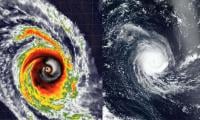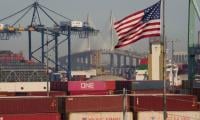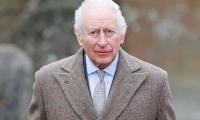Madrassa students share thinking pattern with society: PIPS study
Islamabad
A new study, while reiterating that the worldview of madrassa students is shaped along the sect, to which they subscribe, noted that their likes and dislikes about the world beyond the madrassa’s confines, are not much dissimilar to the society’s in general.
The study, ‘Role of Post-Noon Engagements of Madrassa Students in Radical Orientation,’ conducted by Pak Institute for Peace Studies (PIPS), an Islamabad-based think-tank, was designed to assess the day-to-day activities of the students after their study hours, which usually ends with noon prayers. The purpose was to learn whether those activities are, in any case, responsible for radicalising them. After all, whenever madrassas are accused of have links with militants, their administrators come to the defence, saying the act of individual should not be linked to the institution in general.
Dr. Qibla Ayaz, former vice chancellor of Peshawar University, led the study by surveying a total of 50 students and 16 teachers of five madrassas in Peshawar and Islamabad.
The study found that madrassa students largely have a self-complacent and self-satisfactory behaviour about their own education. The study deemed this behaviour to the students’ inability to critically review about themselves; instead, Dr. Ayaz observed, the students are taught to deem themselves – the learned ones – superior to others.
PIPS also pointed out that the madrassa students have a strong bond with their teachers, reflective from the nearly-unanimous satisfaction of the students in the curriculum and teaching. Because of such a critical role of teachers, the organisation called for engaging more and more teachers in achieving social harmony. It is these teachers who often discard their seminary’s linkages with militants.
Strikingly, the study found that while madrassa students are often portrayed as acting like somewhat alien from others, that might not be the complete case. They are part of the same society – good or bad. For one, their preference for certain subjects show they too might have economic concerns at the top like students outside of seminaries are. Even their political and ideological orientation some reflects those of Pakistani society in general. Students of the madrassas in the survey access three mainstream Urdu newspapers published from Peshawar and Islamabad, suggesting that their sources of information are similar to the others. Even the opinions they read of, are partly sectarian but also partly of those who write in mainstream outlets.
As the students have conformist attitude towards the education they receive, they otherwise form a somewhat diverse group of people, not least with reference to opinions beyond madrassas.
-
 Tropical Cyclone Horacio Becomes World’s First Category 5 Superstorm Of 2026: Latest Forecast & Risks Explained
Tropical Cyclone Horacio Becomes World’s First Category 5 Superstorm Of 2026: Latest Forecast & Risks Explained -
 Hilary Duff Recalls Brutal Thing She Did To Husband Matthew Koma After Losing Their Home In Los Angeles Wildfire
Hilary Duff Recalls Brutal Thing She Did To Husband Matthew Koma After Losing Their Home In Los Angeles Wildfire -
 Princess Beatrice, Edo Mapelli Mozzi Fall Into Marital Woes: ‘He Doesn’t Want Her Seen With Andrew’
Princess Beatrice, Edo Mapelli Mozzi Fall Into Marital Woes: ‘He Doesn’t Want Her Seen With Andrew’ -
 Meta’s Internal Memo Reveals How Executives Ignore Safety Warnings To Push Messenger Encryption Rollout Despite Risks To Teen Safety
Meta’s Internal Memo Reveals How Executives Ignore Safety Warnings To Push Messenger Encryption Rollout Despite Risks To Teen Safety -
 Robert Carradine's Shocking Suicide Answer 'lies' In Brother David Old Tragic Incident
Robert Carradine's Shocking Suicide Answer 'lies' In Brother David Old Tragic Incident -
 'CIA' Star Tom Ellis Drops Bombshell Reason Why He Stayed Away From 'FBI': I Know What They Do'
'CIA' Star Tom Ellis Drops Bombshell Reason Why He Stayed Away From 'FBI': I Know What They Do' -
 Biographer Calls Andrew National Security Risk: ‘This Huge Can Of Worms Is Getting Closer To King’
Biographer Calls Andrew National Security Risk: ‘This Huge Can Of Worms Is Getting Closer To King’ -
 DeepSeek Under Fire: Anthropic Accuses Chinese AI Firm Of Misusing Claude For Unauthorized Model Training
DeepSeek Under Fire: Anthropic Accuses Chinese AI Firm Of Misusing Claude For Unauthorized Model Training -
 Would You Drive In A Driverless Taxi? AI-powered Robotaxis Roll Out In London Amid Growing Debates Over Road Safety, Passenger Convenience
Would You Drive In A Driverless Taxi? AI-powered Robotaxis Roll Out In London Amid Growing Debates Over Road Safety, Passenger Convenience -
 Trump’s Tariff Plan: 10 Percent Rate Takes Effect Despite 15 Percent Announcement Following Supreme Court Ruling
Trump’s Tariff Plan: 10 Percent Rate Takes Effect Despite 15 Percent Announcement Following Supreme Court Ruling -
 Eric Church Reveals How Vince Gill Made His Brother Barndon's Death 'a New Normal'
Eric Church Reveals How Vince Gill Made His Brother Barndon's Death 'a New Normal' -
 Harry, Meghan Offer Help To Beatrice, Eugenie As They Navigate Big Decision
Harry, Meghan Offer Help To Beatrice, Eugenie As They Navigate Big Decision -
 Robert Carradine's Heartbroken Brother Keith Breaks Silence On Actor's Tragic Death
Robert Carradine's Heartbroken Brother Keith Breaks Silence On Actor's Tragic Death -
 How Deepfake Scams Are Reaching Record Levels By Targeting Social Media Users: Everything You Need To Know
How Deepfake Scams Are Reaching Record Levels By Targeting Social Media Users: Everything You Need To Know -
 Taylor Swift Embraces Herself As Her Career Hits Major Milestone: 'I Am Blown Away'
Taylor Swift Embraces Herself As Her Career Hits Major Milestone: 'I Am Blown Away' -
 Andrew’s Arrest Takes Over US Elites: ‘They’re Calling Lawyers In Fear The Police Will Pounce’
Andrew’s Arrest Takes Over US Elites: ‘They’re Calling Lawyers In Fear The Police Will Pounce’



